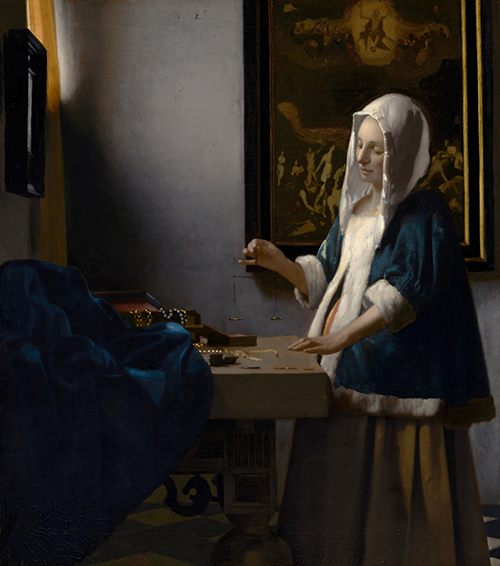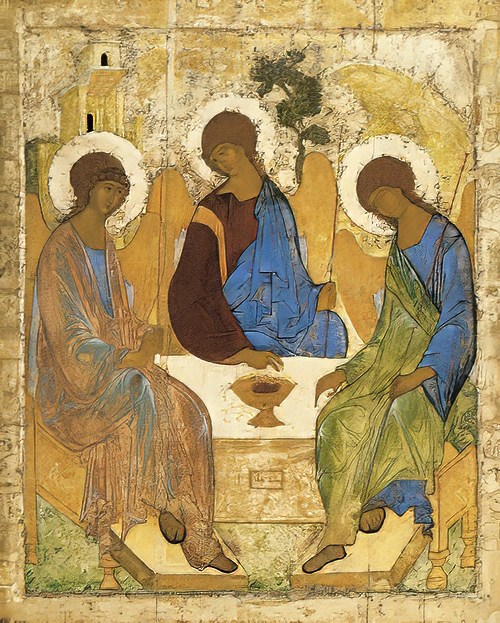Whoever thought of celebrating Saints Peter and Paul together?
St Peter never left home, and St Paul never stayed home!
St Peter said yes, and then he said no!
St Paul said no, and then he said yes.
The occasion they did meet, they argued!

The Dutch artist, Johannes Vermeer (1632-1675), created a painting titled “Woman Holding a Balance “(1662-63). Johannes Vermeer, National Gallery of Art, Washington, DC
In the painting, Vermeer has depicted what discreetly appears to be a young pregnant woman holding an empty balance before a table on which stands an open jewellery box, the pearls and gold within spilling over. A blue cloth rests in the left foreground, beneath a mirror, and a window to the left — unseen save its golden curtain — provides light. Behind the woman is a painting of the Last Judgment featuring Christ with raised, outstretched hands.
Might our celebrating of St. Peter and St. Paul be an invitation to us “to hold in balance” the seemingly opposite parts that reside within me and within my Church.
The Pulitzer Prize-winning author wrote a novel titled “Death Comes For The Archbishop”. The book was initially published in 1927.
In that book, there is a quote that might be for the Saints Peter and Paul feast day: “They had not room in their minds for two ideas.”



